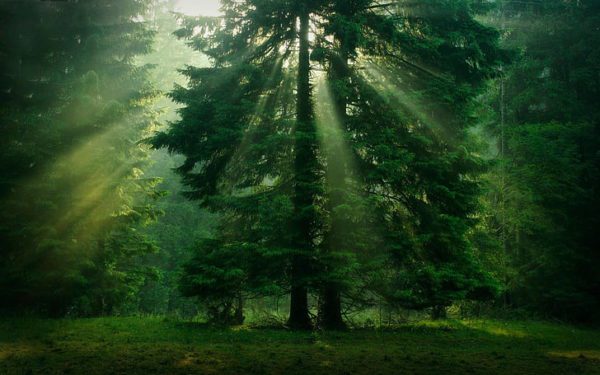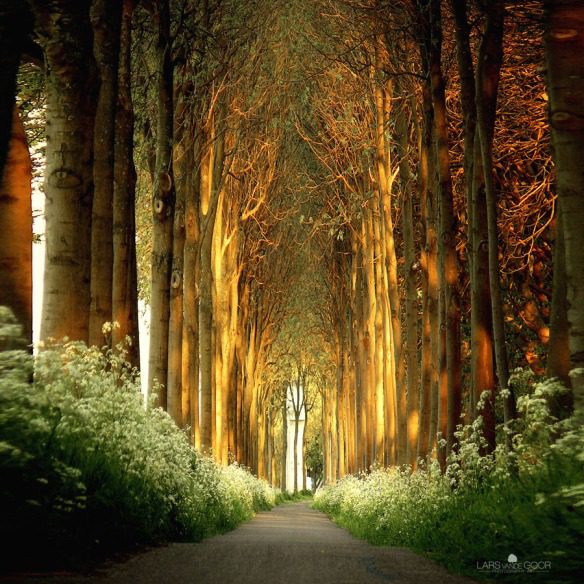
by Mark Townsend
As I sit here, punching away at the computer keyboard, I can see my book shelves in front of me and something about them stands out! When we moved house a year ago, we had to squeeze a large detached vicarage-full of belongings into a small semi-detached ex-council house. On top of that were all my wife’s items that had been in storage. It was an almost impossible task but we did it. One of the hardest things for me was pruning away about 85% of my library. My God it hurt. I love books and I’d gathered an impressive collection that filled my enormous vicarage study. They represented a 30 year spiritual journey. I still had my collection of Unexplained Magazines, all bound into neatly encased volumes. Somehow they’d escaped the flames of my over-zealous book burning sessions. As far as the Christian category went I had everything from popular evangelical novels about the ‘end times’ to the dense and heavy academic tomes of liberal theology and biblical critical scholarship. There were also many dozens of liturgical books representing the Catholic and Orthodox traditions as well as a huge amount of various Christo-spiritualities: charismatic, monastic, Celtic etc. On top of those were more than a few by Christian spiritual teachers who’d somehow managed to combine their own deep Christian vision and experience with other paths: Hindu, Buddhist, African, Native American and Celtic etc. And there were the books and pamphlets from outside the Christian world altogether. Most of these I’d managed to collect since the ‘opening-up-period’ of my Aston Training days. They represented various forms of Paganism, Greek mythology, Buddhism, Hinduism, Gnosticism, Psychology, Quantum Science and what’s loosely referred to as New Age.
As I now ponder the few shelves that are left, it becomes quite obvious that the vast majority of the 85% that I let go of were ‘Christian’ and that most of the remainder are not. Something else strikes me. My interest in non-Christian spirituality goes back much further than I thought. I can see a copy of Principles of Paganism by Vivianne Crowley that I bought about a decade ago, and behind me are books on Eastern Spirituality and New Age that I bought well over fifteen years ago!
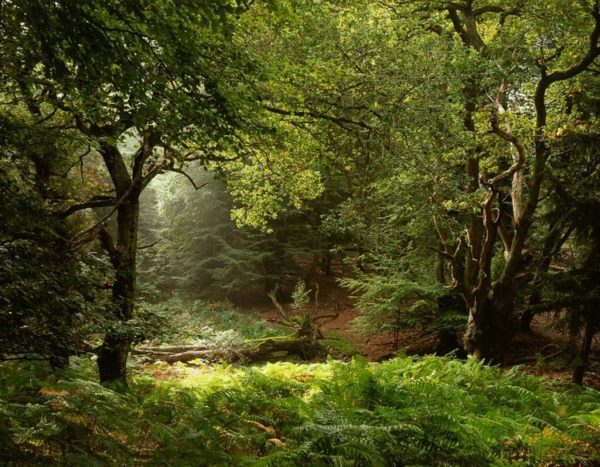 As far as Christian books go, I still own a few dozen but they generally tend to be of the ‘spirituality’ genre and have a highly inclusive or eclectic approach. For example my favourite Christian teacher, Fr. Richard Rohr, who passionately reminds us of the hidden treasures within Christianity, also draws on the rich wells of both Eastern Mysticism and Native American wisdom. I have books by other Christian guides who are heavily influenced by world spirituality: Brother John Martin Sahajananda (Christian-Hindu), John O’Donohue (Christian-Celtic), Anthony De Mello (Christian-Buddhist- Hindu), Sr. Elaine McGuiness (Christian-Zen), Bede Griffiths (Christian-Hindu), Christopher Bryant (Christian-Jungian) and many others.
As far as Christian books go, I still own a few dozen but they generally tend to be of the ‘spirituality’ genre and have a highly inclusive or eclectic approach. For example my favourite Christian teacher, Fr. Richard Rohr, who passionately reminds us of the hidden treasures within Christianity, also draws on the rich wells of both Eastern Mysticism and Native American wisdom. I have books by other Christian guides who are heavily influenced by world spirituality: Brother John Martin Sahajananda (Christian-Hindu), John O’Donohue (Christian-Celtic), Anthony De Mello (Christian-Buddhist- Hindu), Sr. Elaine McGuiness (Christian-Zen), Bede Griffiths (Christian-Hindu), Christopher Bryant (Christian-Jungian) and many others.
In truth noticing the eclectic and universalistic nature of my dishevelled bookshelves does not surprise me for, though I have always loved the person of Jesus, I have found Christianity to be less and less spiritually appealing and harder to make sense of intellectually.
Over the last few years I’ve grown to love many teachers of the eastern spiritual world, but something stops me going the whole way and becoming a Buddhist. The same is true for the more New Age western world. Books by the astonishing Vietnamese Zen Master and Peace Activist Thich Nhat Hanh remain breath-taking and beautiful treasures among my collection, as do the writings of Eckhart Tolle and Neale Donald Walsh. In many ways these books (which represent both East and West) say what I have always tried to express. But there is a word I often come across that always seems to be the place I get stuck – illusion. Of course as an illusionist I use the word to mean unreal – like a mirage. And in essence, when spiritual writers use the term they too mean ‘what is unreal’. Much about our lives is deeply unreal. Much about our assumptions, dreams – even parts of our own characters – is unreal and illusory. However where I get stuck is that sometimes the whole world, the physical universe itself, is viewed as an illusion / unreal. I realise I have failed to adequately understand the term illusion when used this way, and I also know there are many different schools of thought within the spiritual worlds just mentioned, but it does sometimes sound as if, while Christianity teaches us to be ‘in the world but not of the world’, the Eastern and some parts of the New Age worlds often teach us ‘to ascend [the illusion of] the world’.
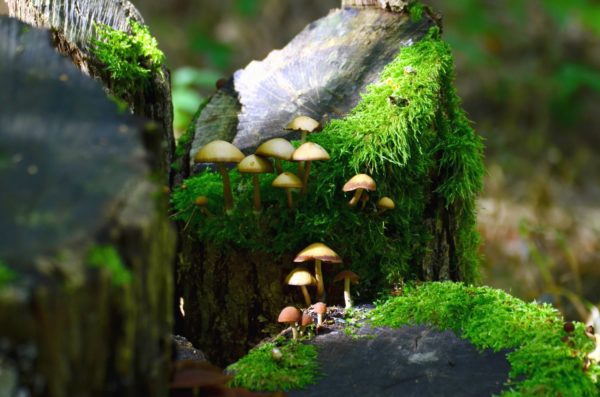 Whenever I try to view the world as an illusion I find myself getting depressed. I prefer to see the world, the physical world around us, as a beautiful (and at times ugly) gift. I see it as the garment worn by deity. I see it as of immense value and importance in itself. I do not want to ascend it or rise above it. I want to be fully plugged into it.
Whenever I try to view the world as an illusion I find myself getting depressed. I prefer to see the world, the physical world around us, as a beautiful (and at times ugly) gift. I see it as the garment worn by deity. I see it as of immense value and importance in itself. I do not want to ascend it or rise above it. I want to be fully plugged into it.
While appreciating that countless millions have found true happiness and bliss by changing their perspective of the world and seeing it as unreal, I simply cannot do this. Perhaps it’s my weakness. Perhaps some day I will follow this path. Perhaps I’m not ready for it yet. I’m certainly not saying it’s wrong. Likewise I am not saying that the ‘in the world but not of the world’ view of Christianity is wrong. It’s simply that I have found the nature-based view of a ‘living’ world, as being much more helpful. It makes far more sense to me right here right now.
In the Spring of 2008 I jotted down the following notes in my Journal. I’d been thinking about nature and the cosmos, in relation to general spiritual traditions. In my own limited way I’d discerned three broad categories of understanding. What was really interesting for me is that I seemed to feel closer to the third one on the list:
The 3 approaches / paths:
1) Western religious (Judeo-Christian). This approach is often heavily dualistic, earth and matter denying. Humans are the Lord’s of creation. There tends to be a big emphasis on ‘The Flesh’ and ‘Sin’ etc. There is also an underlying deep seated suspicion of ‘the world’. We are in the world but we are not of the world.
2) Eastern Philosophical (Hindu, Buddhist, even Gnostic). I have many books that represent this tradition, and some are priceless jewels of wisdom. However this approach is sometimes (strangely) dualistic yet claimed to be non-dualistic. The most extreme versions can end up viewing the material world with almost the same kind of ‘gotta get out of it’ as the extreme Christian approach. The material universe is Maya – illusion. While I find the notion of non-attachment very helpful, I cannot see the earth beneath my feet as mere illusion to be woken up out of.
3) Nature based (Celtic, Native American, and Aboriginal). These indigenous paths usually see the world as somehow divine in itself. It is sometimes Pantheistic, or sometimes Panentheistic, and usually Animistic. Everything has a spirit, an energy, a soul. The Earth is our Mother and the Sky is our Father. This tradition makes more and more sense to me.
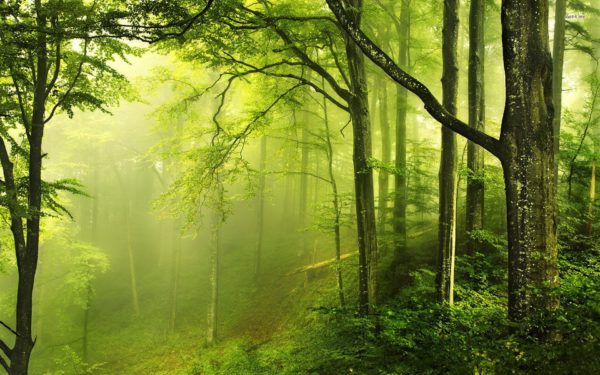 However, I still find great value in the term ‘illusion’ when applied to our thoughts, to what we believe about ourselves, what is unreal about ourselves. In the past I’ve used the term ‘illusion’ myself, in talks and writings. But I have always used it as a term to describe the dream-like state from which spirituality helps us to wake up. When we wake up we see ourselves and the world as it truly is, we become present to the moment and sense the deep connection of all things. For me these moments are priceless glimpses into the beauty and spiritual resonance of everything around us, so that the physicality of the planet is made even more real rather than less real. I do not see the physical world as an illusion in the sense that some spiritual teachers do, a mask, or even a veil to the true nature of everything. I see the physical planet as a beautiful gift in itself.
However, I still find great value in the term ‘illusion’ when applied to our thoughts, to what we believe about ourselves, what is unreal about ourselves. In the past I’ve used the term ‘illusion’ myself, in talks and writings. But I have always used it as a term to describe the dream-like state from which spirituality helps us to wake up. When we wake up we see ourselves and the world as it truly is, we become present to the moment and sense the deep connection of all things. For me these moments are priceless glimpses into the beauty and spiritual resonance of everything around us, so that the physicality of the planet is made even more real rather than less real. I do not see the physical world as an illusion in the sense that some spiritual teachers do, a mask, or even a veil to the true nature of everything. I see the physical planet as a beautiful gift in itself.
An ancient Christian doctrine that I have always appreciated is The Incarnation. Traditional Christianity understands this as the becoming flesh of God, the place where God literally steps into our world in the form of one man. However I have grown to see it as a symbol of what already is, as if there is a hidden divinity to humankind itself. So Jesus somehow represents what is true for all humans, and perhaps for the whole of nature too – that God lives in it and through it. I do not want to think of myself as ‘not of the world’ or as having to ‘ascend the world’. I want to be fully part of it. And, as time has progressed, this is precisely what has been happening to my experience.
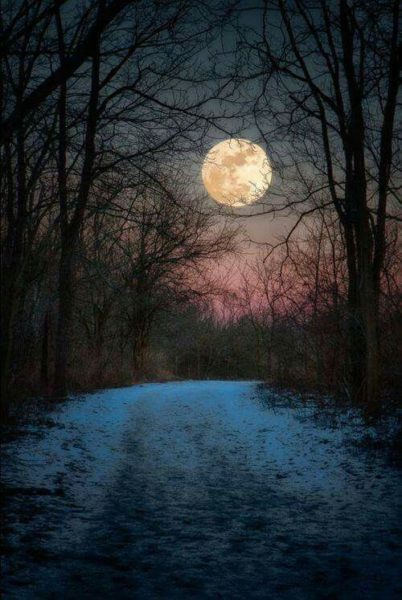 Over my last few years (as a Vicar) I started to recognise a gradual shift in how I understand the central facets of the faith to which I belonged. Being a free thinker, I was never really concerned about where my thoughts and ideas were going, as long as I was honest with myself. It seemed to be the case that, alongside both my theoretical fascination with other spiritual paths and my tendency to spend more and more real-time finding glimpses of God outside the church, came an automatic inner re-evaluation of belief. I remember sitting down, journal in hand, asking myself what the various doctrines and ideas of my own faith meant to me. I began with the Sacraments and without thinking I wrote that they were simply beautiful ritual acts that dramatise and symbolise what is already true. For example, a baby’s baptism might traditionally be seen of as some strange ceremony that brings a child out of darkness into light. But for me it was an acting out of what is already true for that child – he /she is already filled with divinity and is a child of God. Of course baptism is so much more than any words can describe which is why we use religious symbolism. Symbols speak a broader, more universal language than any verbal dialect. The real power of baptism is in the symbol of being buried and risen which, of course, will happen time and time again throughout life. In life we go through many deaths, be it a death of a career, a relationship or a literal death. Jesus (like the many god-man-Christ-figures before him) is, in part, a powerful symbol of what is true for all humankind – life, death, re-birth. Baptism acts this cycle out, which is why it appears in many other ancient cultures beyond the world of Christendom. Jung would possibly call it a universal archetypal ritual.
Over my last few years (as a Vicar) I started to recognise a gradual shift in how I understand the central facets of the faith to which I belonged. Being a free thinker, I was never really concerned about where my thoughts and ideas were going, as long as I was honest with myself. It seemed to be the case that, alongside both my theoretical fascination with other spiritual paths and my tendency to spend more and more real-time finding glimpses of God outside the church, came an automatic inner re-evaluation of belief. I remember sitting down, journal in hand, asking myself what the various doctrines and ideas of my own faith meant to me. I began with the Sacraments and without thinking I wrote that they were simply beautiful ritual acts that dramatise and symbolise what is already true. For example, a baby’s baptism might traditionally be seen of as some strange ceremony that brings a child out of darkness into light. But for me it was an acting out of what is already true for that child – he /she is already filled with divinity and is a child of God. Of course baptism is so much more than any words can describe which is why we use religious symbolism. Symbols speak a broader, more universal language than any verbal dialect. The real power of baptism is in the symbol of being buried and risen which, of course, will happen time and time again throughout life. In life we go through many deaths, be it a death of a career, a relationship or a literal death. Jesus (like the many god-man-Christ-figures before him) is, in part, a powerful symbol of what is true for all humankind – life, death, re-birth. Baptism acts this cycle out, which is why it appears in many other ancient cultures beyond the world of Christendom. Jung would possibly call it a universal archetypal ritual.
What about marriage? Well at a wedding the Priest’s words do not create a married couple. In fact the couple themselves are the real priests in the marriage ceremony. It is their vows and their sexual joining together that makes true what already is. The ordained priest or celebrant merely vocalises and witnesses the event.
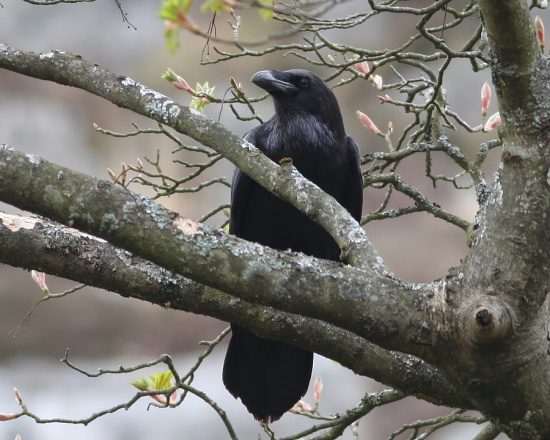 At a Eucharist [and here is where I’m likely to be accused of sacramental heresy] the priest, by ritual and drama, makes present the memory of something both shocking and wonderful that happened many years ago. The truth of this act is hard to fully comprehend [indeed there are possibly many truths] and the ritual enacted brings it to mind again. The most basic meaning is again Incarnation – we eat and drink bread and wine said to be the body and blood of God – because we are in some strange way the body and blood of God ourselves (humans filled with deity). Thus again it makes true what already is. The more I think about it the more the whole Christian story is about making true what already is.
At a Eucharist [and here is where I’m likely to be accused of sacramental heresy] the priest, by ritual and drama, makes present the memory of something both shocking and wonderful that happened many years ago. The truth of this act is hard to fully comprehend [indeed there are possibly many truths] and the ritual enacted brings it to mind again. The most basic meaning is again Incarnation – we eat and drink bread and wine said to be the body and blood of God – because we are in some strange way the body and blood of God ourselves (humans filled with deity). Thus again it makes true what already is. The more I think about it the more the whole Christian story is about making true what already is.
Christ comes to show humans who they are, not what they are not. The sacrificial love displayed on the cross does not change God’s mind about us (as the so called objective views of the Atonement states). The spectacle of the cross changes us not God! How? By displaying costly love rather than brutal judgement.
If we see Jesus as a literal, perfect offering, a human blood sacrifice, then we have no choice but to view God as wrathful, and who needs his mind changing by having Jesus pay the price for our sins. He dies, we get let off the hook! But if we see the symbol of the god-man Jesus hanging on a tree as a selfless act of love, joining humankind at its ugliest, lowest, shittiest place, and not retaliating with any sense of hatred or revenge, then there is more chance of our own view of God being changed. We might even fall in love with such a loving God rather than being terrified of Him. Thus the Jesus-Tree can either perpetuate a Toxic view of God or it can heal it.
Increasingly I see the human family as, at its core, somehow strangely divine, and the church’s role as being about awakening folk to their hidden inner divinity rather than ‘converting them to a new religion’. This is the role, not just of the Church, but nature based / pagan religions too. Centuries before Jesus the multitude of god-man myths (that we find in Egypt, Greece, Persia and all over the ancient world) were there to point to the belief that all were sons and daughter of the gods. I’ve naturally started to see the whole of creation as buzzing with life, energy and deity. A few years ago I was interviewed for a radio show and the interviewer asked me where I most experience the presence of God. Without a moment’s hesitation I said, ‘within the forest’, and went on to describe the local forest as ‘My Natural Cathedral’.
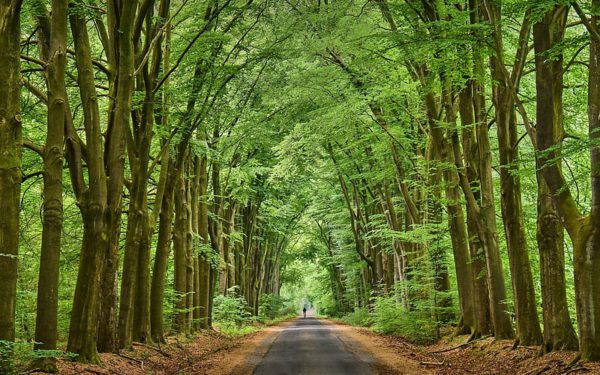 I am a dreamer, and have in the past found it very difficult to actually notice beauty all around me. Put me in a gallery of paintings and I will usually start to read into the artwork before actually seeing it for what it is. The same has been true for garden full of flowers, or even streets full of people. The expression ‘can’t see the wood for the trees’ comes to mind. I might seem ignorant when I walk straight past someone in the street, but the truth is I didn’t see her. I was too busy imagining some great voyage or dreaming of the next book to write.
I am a dreamer, and have in the past found it very difficult to actually notice beauty all around me. Put me in a gallery of paintings and I will usually start to read into the artwork before actually seeing it for what it is. The same has been true for garden full of flowers, or even streets full of people. The expression ‘can’t see the wood for the trees’ comes to mind. I might seem ignorant when I walk straight past someone in the street, but the truth is I didn’t see her. I was too busy imagining some great voyage or dreaming of the next book to write.
In my first book I talk about ‘looking without seeing’. It is one of the most basic roles of meditation – to help folk to wake up to the present and stop dreaming about the past or the future.
I’m truly delighted that, though still a dreamer, I’m now beginning to spend more and more time in the present, and can actually now look and see. I often take our family dog for walks up the forest and, every time, I am truly blown away by the beauty of the sights, sounds and smells up there. I find the forest a deeply inspiring place to sit and ponder. I still allow my imaginative side to play but I also notice things that I would have once missed, like the feeling of the leaves brushing across my face, or the tiny spider crafting her intricate web in the hollowed out area of a branch.
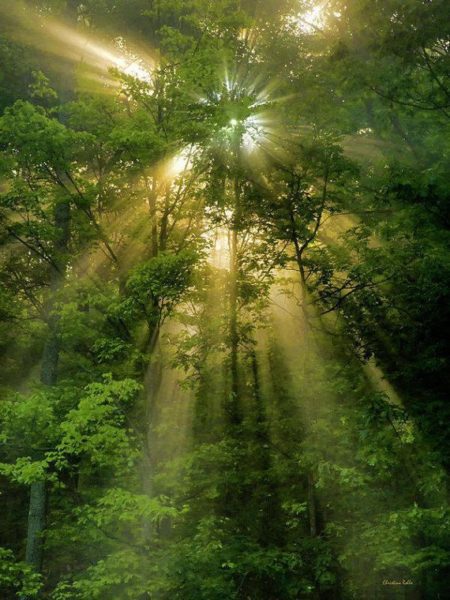 The following is a journal entry of a recent forest walk. I was literally over-awed by the power of nature:
The following is a journal entry of a recent forest walk. I was literally over-awed by the power of nature:
As I stepped out of the car into the rich green surroundings of the forest I experienced something quite profound. I was suddenly struck by a natural orchestra of sound. Nature’s spring time musicians played their instruments and the whole area was an amphitheatre of exquisite song. I wish I knew all the names of the various singers… I could make out a few: the tweets of the various tits, the caw of the crow, the occasional quoo quoo of the dove, some distant others closer, all held together by the skillful invisible baton held by Mother Nature herself. This experience is breathtaking.
Such is the power of the forest for me I now find it my main place of inspiration for writing. It’s also where I met a real Wizard.
An Extract from The Path of the Blue Raven by Mark Townsend, O Books, 2009
